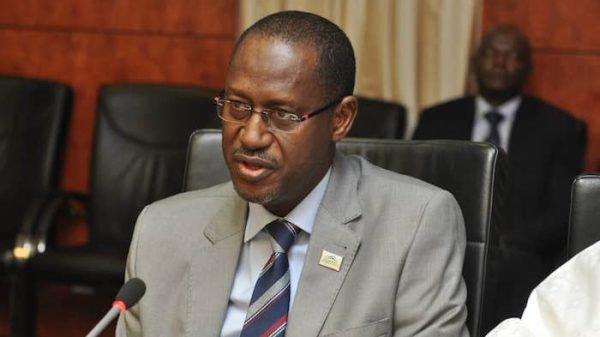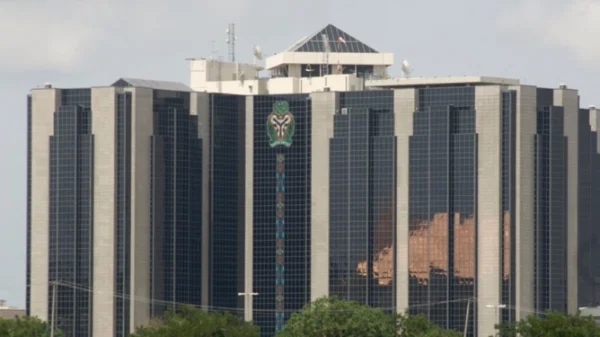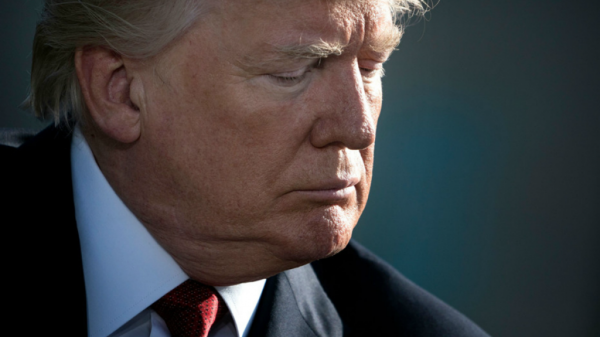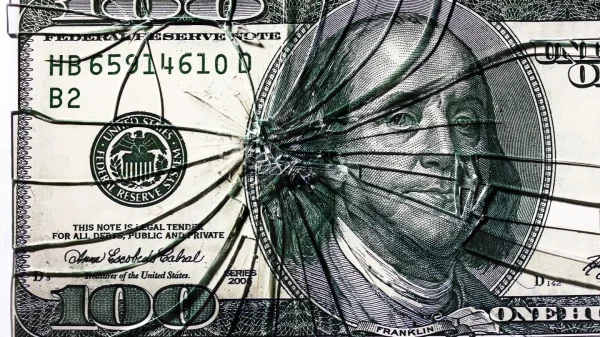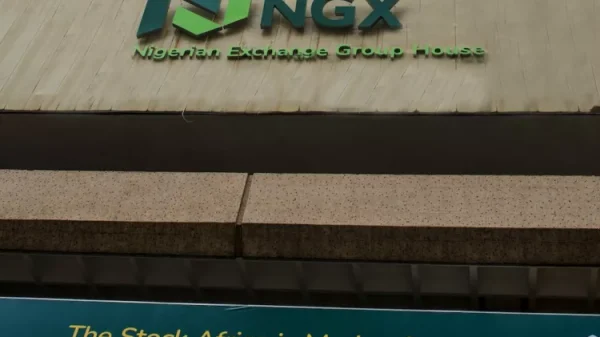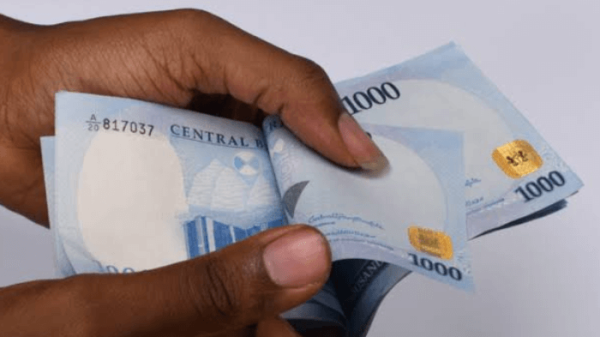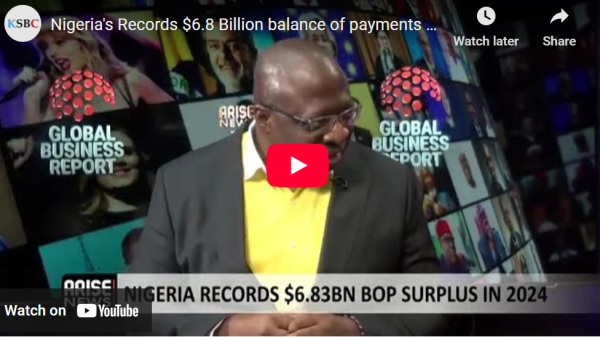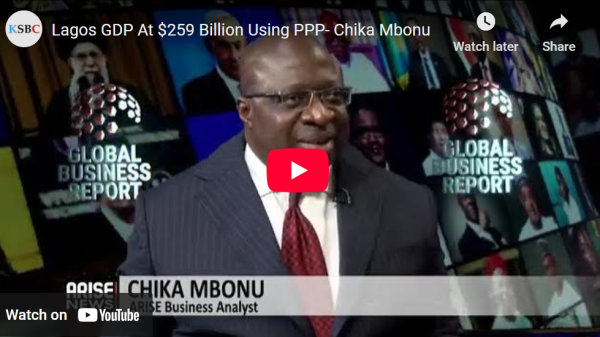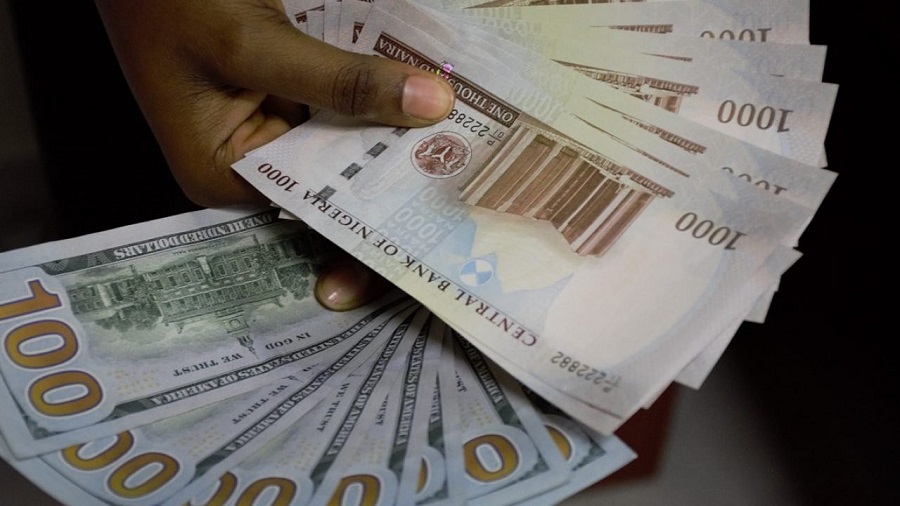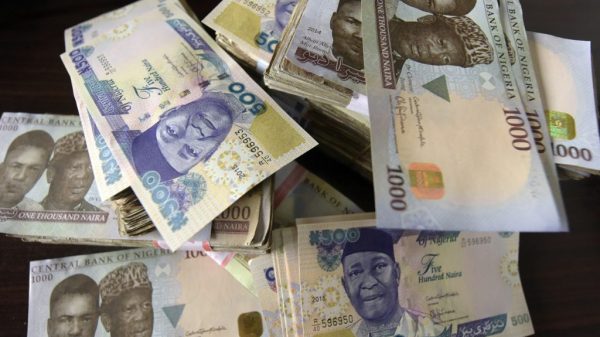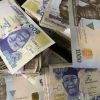The exchange rate between the naira and the US dollar at the official Investors and Exporters (I&E) window closed at N416/$1.
Naira appreciated marginally against the US dollar on Friday to close at N416/$1, representing a 0.08% gain compared to N416.33/$1 recorded in the previous trading session. On the other hand, forex turnover at the official market increased by 57.5% to $142.42 million compared to $90.42 million that exchanged hands on Thursday.
On the other hand, the exchange rate fell by 0.09% at the P2P market on Monday morning, trading at a minimum of N579.5/$1 compared to N579/$1 recorded as of the close of trading activities on Friday.
Meanwhile, naira remained flat at N570/$1 at the parallel market, maintaining the same rate in the past three trading session. This is according to information obtained from BDC operators interviewed by Nairametrics.
Nigeria’s foreign reserve recorded a marginal decline of $30.5 million to close at $40.3 billion as of 20th January 2022, representing a 0.08% decline compared to $40.54 billion recorded as of 19th January 2022.
Trading at the official NAFEX window
The exchange rate at the Investors and Exporters window closed at N416/$1 on Friday, 21st January 2022, which represents a 0.08% appreciation compared to N416.33/$1 recorded in the previous trading session
- The opening indicative rate closed at N414.76/$1 on Friday, which represents 66 kobo depreciation compared to N415.42/$1 recorded in the previous trading session.
- An exchange rate of N444/$1 was the highest rate recorded during intra-day trading before it settled at N416/$1, while it sold for as low as N406/$1 during intra-day trading.
- Forex turnover at the official window increased 57.5% to $142.42 million on Friday, 21st January 2022.
- According to data tracked by Nairametrics from FMDQ, forex turnover at the I&E window increased from $90.42 million recorded on Thursday 20th January 2022 to $142.42 million on Friday 21st January 2022.
Cryptocurrency watch
The cryptocurrency market continues to suffer from huge sell-offs following the decision by the US Fed to raise interest rates at least three times precipitating the liquidation of most leveraged assets in the market.
The crypto market dipped by 4.2% in the early hours of Monday to stand at $1.59 trillion in market value representing a $69.5 billion decline. The movement in the market was triggered by the 2.99% decline in the crypto flagship asset to stand at $35,193.
Ethereum also recorded a 5.52% decline to trade at $2,402.93 as of 7am on Monday.
However, a recent Nairametrics article revealed that the Bitcoin network has recorded a new all-time high mining difficulty of 26.643 trillion with an average hash rate of 190.71 exahash per second (EH/s), signalling strong community support despite an ongoing bear market.
Crude oil price
The crude oil market started the week on Monday on a positive note, following the bullish run recorded in the previous week. As press time, Brent Crude had gained 0.68% to trade at $88.49 per barrel compared to $87.89 closing price recorded in the previous trading session.
The price of crude oil at $88.49 per barrel represents the highest price in over seven years. Similarly, West Texas Intermediate (WTI) also gained 0.65% to trade at $85.69 per barrel, while Natural gas dipped by 2.15% to trade at $3.913 per barrel.
Meanwhile, the growth recorded in the market was following the drone attack on the UAE, in the most important oil-producing and exporting region, adding to the continuous tightness in the crude oil market hereby elevating the prices.
On the other hand, Bonny Light dipped by 1.26% to trade at $89.03 a barrel while other Nigerian crude, Brass River and Qua Iboe both trading at $87.84 per barrel represents a 2.68% dip. It is worth noting that the price for the Nigerian crude product are 3 days delayed.
External reserve
Nigeria’s external reserve dipped by 0.08% on Thursday, 20th January 2022 to close at $40.3 billion, which represents a decline of $30.5 million as against $40.4 billion recorded as of the previous trading day.
The continuous decline in the country’s reserve level can be attributed to the Central Bank’s intervention in the official market in ensuring the stability of the exchange rate. It is worth noting that the nation’s foreign reserve gained $5.99 billion in the month of October, as a result of the $4 billion raised by the federal government from the issuance of Eurobond in the international debt market.
However, in the month of November, Nigeria’s external reserve lost $611.01 million in value as against a gain of $5.99 million recorded in the previous month and a $2.76 million gain in September 2021. In December 2021, the reserve dipped by $66.17 million, while in January 2022 a total of $174.2 million has been lost in the reserve level.
FOR MORE INFORMATION VISIT: https://ksbcjournal.com/






